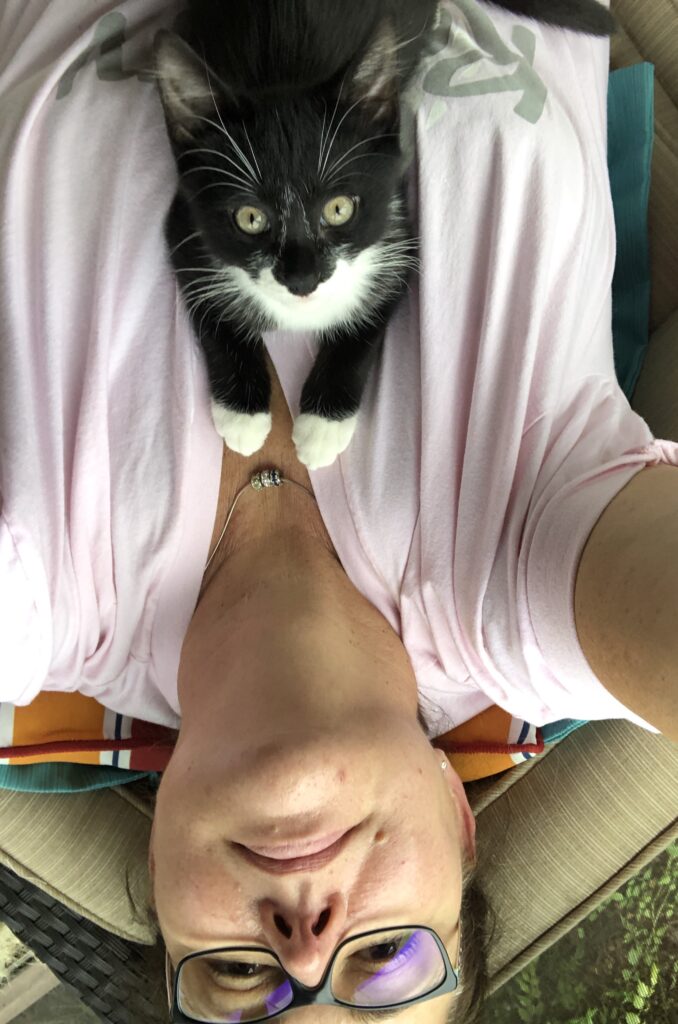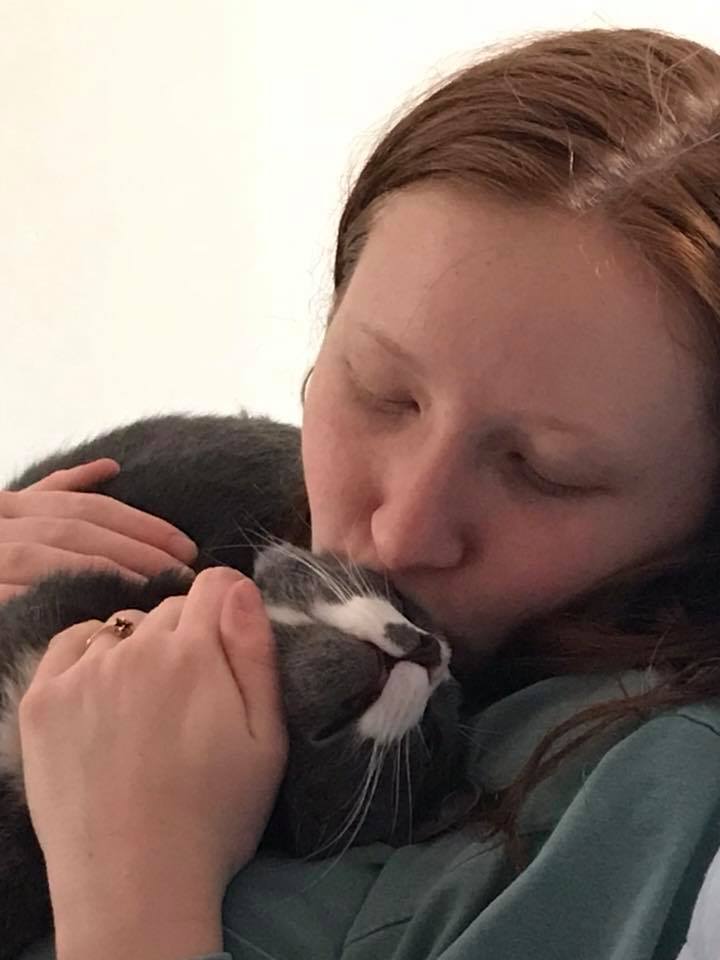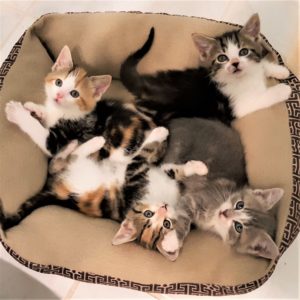
Domesticated Cats have been around for least 10,000 years and have warmed our hearts and souls with their amusing antics and soft-spoken presence ever since. If you have never owned a cat, it is hard to imagine the feelings of love and comfort that these four-legged friends inspire. But did you know, according to science, cats are actually good for your health?!
Mental Health
Owning a cat improves mental health by reducing stress, anxiety, and feelings of loneliness. Cats are incredibly entertaining. They respond to both your voice and touch and can keep you laughing and smiling all day long. You see, spending time with a cat, or cats as the case may be, triggers the release of oxytocin, the hormone is known for inducing feelings of love and trust and reduces the stress hormone, cortisol. In fact, a Swiss study revealed that owning a cat is similar to having a romantic partner and listen up guys — women are more attracted to men who own cats!
“Alzheimer’s patients have fewer anxious outbursts if they live with a companion animal.” WebMD
Relief from Grief
Losing a loved one is incredibly painful, but one of the best coping strategies is to own a pet. Cats offer a calming presence, comfort, compassion, and unconditional love, which can be extraordinarily soothing when faced with feelings of isolation. Cats have been shown to help people get over their loss more quickly, and show less physical symptoms of pain. Cats are intelligent animals and serve as a social support during difficult times. People in mourning report that talking to their pets helps them work out feelings of grief — they don’t judge or talk back. Cats, in particular, are very connected to their owners in ways that other animals and people are not. Pets depend on you for their care and wellbeing, but in return, they give purpose to your life.

Autism Spectrum Disorder
We all know that cats have a reputation for being aloof, but Frontiers in Veterinary Science reports that cats are affectionate with children with ASD, benefitting the children and families. Children with autism seemed to be less anxious and calm while petting a cat. Researchers from the University of Missouri found that the social interaction of children with autism dramatically improved when around pets. In the study, half the families that participated had cats, with parents reporting strong attachments forming between the cat and their child. ‘These kinds of social skills typically are difficult for kids with autism,’ Gretchen Carlisle, a research fellow at the Research Center for Human-Animal Interaction, said. ‘But this study showed children’s assertiveness was greater if they lived with a pet.’
We must stress the importance of finding a cat with ideal traits for a child with ASD, look for a kitty who is affectionate, well socialized (preferably with children), and is very low on the aggression scale. Purr Partners has adoption counselors who are incredibly well-versed in matching the appropriate feline to suit the specific needs of individual families.
Cardiovascular Benefits
But the benefits don’t stop there, our feline friends provide us with more than just emotional support. In a 2017 study, cat owners who were in their late 50s had half as many diagnosed health conditions and took 30% fewer prescribed medications as did their counterparts who didn’t own a cat. Who knew that independent fur-ball could be so good for you!
The University of Minnesota’s Stroke Institute has reported that cat owners have 40% less risk of suffering a heart attack and have lower triglycerides and cholesterol levels. High triglyceride and cholesterol levels contribute to heart disease and are symptomatic of type 2 diabetes as well as strokes, liver and kidney disease. Naturally, reductions in these levels lead to a decreased risk of these diseases as well.
“Male pet owners have fewer signs of heart disease — lower triglyceride and cholesterol levels — than non-owners.” WebMD
Want your kids to breathe easier?
Furry family members may help to increase children’s immunity and reduce the risk that they will have asthma, allergies, and even eczema. The NIH reports that infants who were exposed to a cat were less likely to develop allergies — and not just pet allergies!
“High pet exposure early in life appears to protect against not only pet allergy but also other tips of common allergies such as an allergy to dust mites, ragweed, and grass.” Marshall Plaut, MD, National Institute of Allergy and Infectious Diseases
The Healing Power of Purrs
Of course, this is our most favorite healing power — PURRS! What about those vibrating sounds that cats make? Much of why a cat purrs is still a mystery, recent studies suggest that purring acts as a natural healing mechanism in both cats and humans.
A cat’s purr has been compared to a human smile. People smile for a variety of reasons — when they are happy, nervous, unsettled, or when they try to make someone else feel comfortable. It’s that way with a purr as well. Cats may purr when happy or content, but they may also use it as a way of self-soothing and healing. They may purr when they are nervous, sick, in pain, or even when close to death. This makes sense because of the endorphins that are released during the act of purring.
Purrs vibrate at 20-140 HZ, which is also the same frequency that assists in the mending of broken bones as well as muscle, tendon, and ligament injuries. The vibrations increase bone density levels and help with the physical healing of infection and swelling. Therefore nearby humans may be therapeutically benefitting from these vibrations. Purring also decreases the symptoms of dyspnea, the difficulty or pain with breathing, in both cats and humans.
It seems that cats may have the ability to relieve us of our troubles or at least push our worries a little further away while we are with them. Cats have always struck me as being a bit mystical and magically mysterious — now they have healing powers?! It’s nice to know that having a fuzzy fur-baby around will add years to our lives — I guess those crazy cat ladies aren’t so crazy after all!
Written by: Sondra Triblehorn, Board of Directors, Purr Partners Feline Rescue
How Animals Benefit Individuals with Autism – Autism Awareness. https://autismawarenesscentre.com/animals-benefit-individuals-autism/
MU News Bureau | MU News Bureau. https://munews.missouri.edu/news-releases/2018/0305-millennials-are-not-adequately-saving-for-retirement-mu-study-finds/







